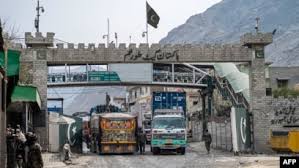Trade and investment problems in Afghanistan

Trade and investment in Afghanistan is facing many challenges that have severely affected the economic growth and sustainable development of this country. The key problems of trade and investment in Afghanistan are:
-
Political insecurity and instability:
- Unfavorable security situation: widespread insecurity and civil wars are the main obstacle to investment and business development. Domestic and foreign companies refuse to invest in Afghanistan due to life and financial threats.
- Political instability: successive changes in governments and armed groups such as the Taliban and uncertainty in government policies have caused investors to lose their trust in this market.
-
weak infrastructures:
- Lack of economic infrastructure: Weak transportation system, lack of suitable road networks, problems in the energy sector and limited access to water and electricity are major obstacles to trade and investment in Afghanistan.
- Lack of commercial ports: Due to lack of access to the sea, Afghanistan is deprived of suitable ports for export and import, and this issue has made foreign trade more difficult.
- widespread corruption:
- Administrative and financial corruption: Corruption in government institutions and executive institutions is one of the biggest obstacles in the way of trade and investment. Complex bureaucratic processes and bribery prevent entrepreneurs from continuing economic activities.

-
deficiencies in laws and legal frameworks:
- weakness of the legal system: the lack of coherent commercial laws and the lack of proper implementation of the existing laws cause uncertainty for investors. Problems related to property rights, contracts and resolving commercial disputes are also among the issues that investors face.
- Lack of legal protection for foreign investors: Many foreign investors complain about the lack of proper legal guarantees and the lack of effective legal protections in Afghanistan.
-
Banking and financial problems:
- Lack of modern banking system: Afghanistan’s banking system still relies on traditional methods and there are no advanced banking facilities to attract foreign investments. Difficulties in accessing financial services, especially for international trade, have slowed the investment process.
- Difficulty of money transfer: Due to international sanctions and restrictions, money transfer to and from Afghanistan is associated with many difficulties, which has a negative impact on foreign trade.
-
Lack of skilled labor:
- Problem of education and expertise: Many workers and local forces do not have enough skills and knowledge to work in the economic and industrial sectors due to the weak education system. This issue limits the country’s ability to attract industrial and technological investments.
-
International sanctions and isolation:
- Economic and Political Sanctions: Sanctions imposed on Afghanistan have hindered international trade and investment due to the current political situation. International companies are reluctant to cooperate with Afghanistan due to these restrictions.
- Economic isolation: lack of full membership in international trade organizations and restrictions caused by foreign policies have prevented Afghanistan’s business from participating in global markets.
-
Increasing taxes and administrative restrictions:
- Increase in taxes: One of the major complaints of Afghan businessmen in recent years is the increase in taxes and customs duties, which has reduced their profitability and competitiveness.
- Heavy bureaucracy: The complicated and time-consuming administrative processes for obtaining business and investment licenses have hindered the acceleration of economic growth and trade.
These problems show that Afghanistan needs serious reforms in the security, legal, economic and infrastructure sectors in order to attract investment and develop business in order to exploit its economic potential.